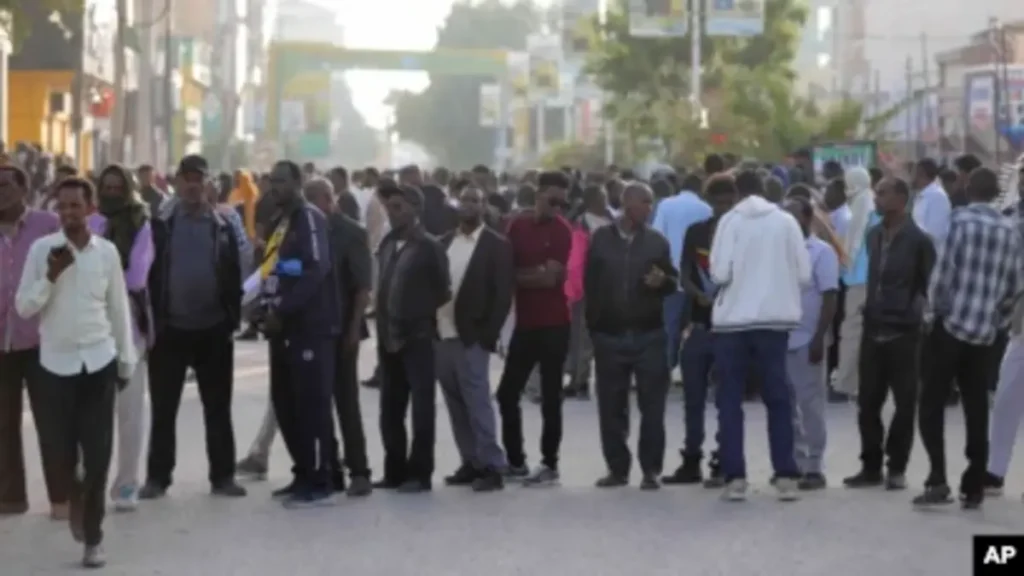Somaliland, the self-declared independent region in northwestern Somalia, witnessed a historic moment on Wednesday, November 13, 2024.
Over one million registered voters headed to polling stations across the region. They participated in a crucial presidential election.

People queue to cast their votes during the 2024 Somaliland presidential election at a polling station in Hargeisa, Somaliland, Nov. 13, 2024.Courtesy photo
The election marked a significant step in Somaliland’s journey towards international recognition. Voters queued at more than 2,000 polling stations.
Three prominent candidates competed for the presidency in this landmark election. Each represented different political parties and visions.
Incumbent President Muse Bihi Abdi sought re-election under the ruling Kulmiye Party banner. He faced strong competition from two challengers.

Abdirahman Mohamed Abdullahi of the Waddani Party emerged as a significant contender. He presented himself as an agent of change.
The third candidate, Faisal Ali Warabe, represented the Justice and Welfare Party. He offered voters another alternative for leadership.
This presidential election came after a two-year delay. It was originally scheduled for 2022 but faced several postponements.
Voters expressed various concerns at polling stations. Many hoped for economic improvements and increased job opportunities.
The election took place amid significant regional developments. A recent agreement between Somaliland and Ethiopia added complexity to the situation.
Somaliland has maintained de facto independence since 1991. It separated from Somalia following the collapse of the central government.
The region has established its own functioning government over the past three decades. It maintains its own currency and security forces.
Despite these achievements, international recognition remains elusive. No country officially recognises Somaliland as an independent nation.
The election process demonstrated Somaliland’s commitment to democratic principles. Officials organised the voting with minimal external support.
Security forces maintained peace throughout the voting process. They ensured voters could safely access polling stations.
Election observers noted the orderly nature of the proceedings. Voters showed patience and determination throughout the day.
The electoral commission implemented strict voting procedures. Each voter had to present proper identification before casting their ballot.
Local businesses closed for the day to allow citizens to vote. This showed strong community support for the democratic process.
Young voters participated enthusiastically in the election. Many expressed hopes for better economic opportunities.
Women voters turned out in significant numbers. They played an active role in shaping their nation’s future.
The election highlighted Somaliland’s unique position in the Horn of Africa. It functions independently despite lack of international recognition.
Regional analysts watched the election closely. They noted its potential impact on stability in the Horn of Africa.
The recent agreement with Ethiopia added significance to the election. It could influence future diplomatic relationships.
International observers praised the peaceful conduct of the election. They noted Somaliland’s commitment to democratic values.
Local media provided extensive coverage of the voting process. They reported from various polling stations across the region.
Business leaders expressed optimism about the election’s impact. They hoped for policies supporting economic growth.
Civil society organisations actively monitored the voting process. They helped ensure transparency and fairness.
The election represented more than just choosing a leader. It demonstrated Somaliland’s capability for self-governance.
Citizens viewed the election as another step toward recognition. Many hope it will strengthen their case for independence.
The international community watched with interest. The election’s success could influence future diplomatic relationships.



















